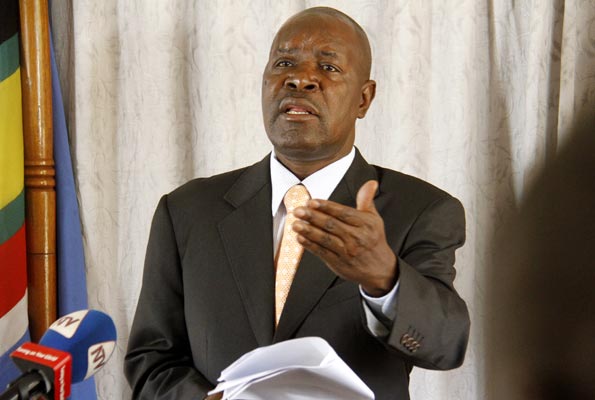Cabinet has approved the ratification of the agreement establishing the African Continental Free Trade Area (AfCFTA) which seeks to create a single market for goods and the services and movement of business persons in accordance with agenda 2063.
This was revealed by the Executive Director of the Uganda Media Centre Ofwono Opondo while addressing journalists on this week’s Cabinet resolutions, Tuesday morning in Kampala.
In March this year, in Kigali Rwanda, a total of 44 African countries including Uganda signed the free trade agreement which is envisaged to significantly boost continental trade.
The agreement also seeks to promote economic, social and cultural development and integration of African economies to increase economic self reliance as well as abolish non tariff among member states.
So far, on the entire African continent, only seven countries (Chad, eSwatini, Ghana, Guinea, Kenya, Rwanda and Niger) have ratified the Agreement which is widely considered as a landmark.
Atleast 22 states are required to deposit their ratification instruments, the Agreement establishing the AfCFTA for it to come into force.
Experts say that with a continental market of 1.2 billion people and a combined GDP of more than USD 3.4 trillion, there is great potential for African countries to turn around their exports through trading amongst each other.
This comes at the backdrop of increased rigid conditionalities in Western markets imposed on African imports while some other developed economies continue to come up with protectionist economic polices.
In other resolutions passed by Cabinet on Monday, a policy towards zero tolerance to corruption was passed.
Opondo who doubles as government spokesperson said the approved policy, government is to collaborate and coordinate as well as strengthening different stakeholders in the fight against corruption.
“The objectives of the zero tolerance to corruption policy 2018 are to firmly renew government’s commitment to fight corruption by strengthening synergies, collaboration and and coordination amongst all stakeholders and non government for the effective implementation of anti corruption measures,” he added.
He told the press that government is to institute and effectively enforce anti corruption measures through strengthening and effecting existing anti corruption policies as well as inculcating a culture of patriotism and integrity in people at different levels.
In the Monday Cabinet meeting, it was also resolved that a grant of US$ 62.5m from the international development Association if the World Bank and borrowing US$ 87.5m as additional funding for Development Response to Displacement Impacts Project.
The project will increase access to basic social services expand economic opportunities and enhance environmental management for communities hosting refugees and improve their welfare.








